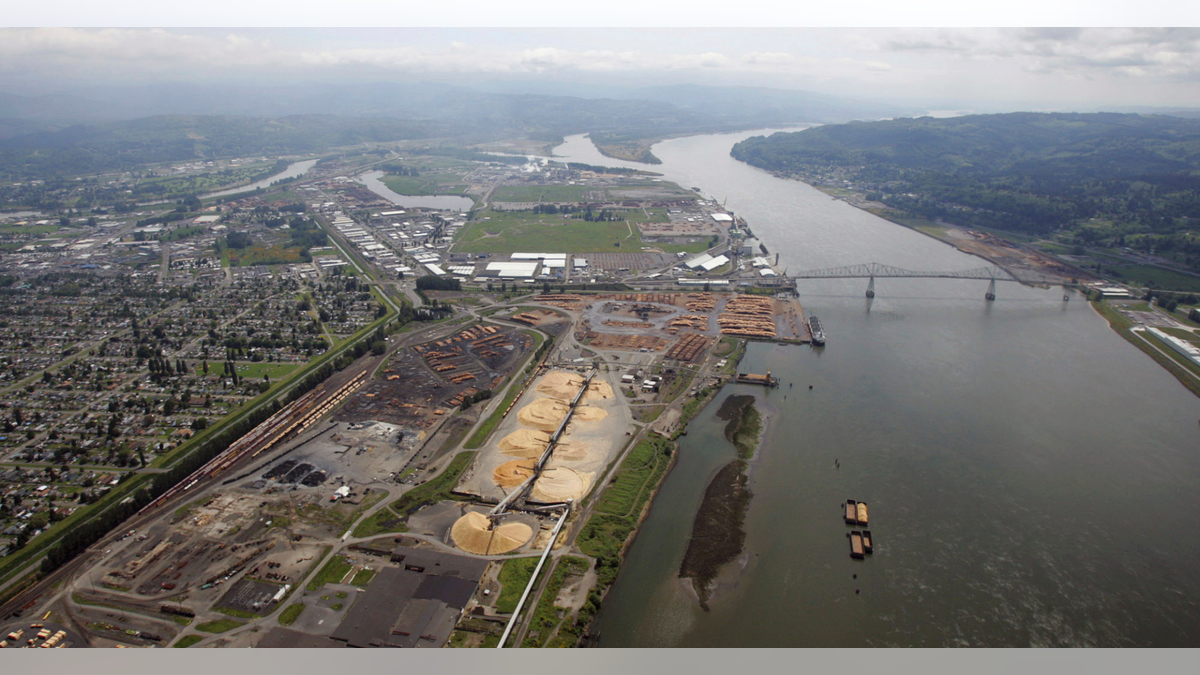
SEATTLE – A Washington state judge on Friday handed a victory to the developers of a massive proposed coal-export terminal on the Columbia River, saying the state acted arbitrarily when it blocked a sublease sought for the project.
The decision, by Cowlitz County Superior Court Judge Stephen Warning, followed a series of recent setbacks for Millennium Bulk Terminals, including the state Ecology Department's decision to deny it a needed water-quality permit.
The $680 million terminal, which would ship coal from Montana, Wyoming and other states to Asia, could boost U.S. coal exports by 40 percent. The plans are reviled by environmentalists and Indian tribes because of concerns about global warming, coal dust pollution and potential damage to fisheries on the river.
"This decision validates our argument that when the law is fairly applied and facts are impartially weighed, Millennium's project meets environmental standards and should be approved," Wendy Hutchinson, the company's vice president of government and public affairs, said in a news release after Friday's decision.
The ruling overturned a decision made by outgoing Public Lands Commissioner Peter Goldmark early this year. Goldmark, as head of the Department of Natural Resources, had denied permission for the project to use docks at a former aluminum smelter, saying Millennium hadn't provided enough information about its finances, among other concerns.
Nevertheless, the terminal has a long ways to go before it gets a green light.
The state Ecology Department last month denied it a water quality permit, prompting a lawsuit from Millennium, and the Department of Natural Resources this week denied it a site plan, a decision the developers are also trying to remedy. It faces a hearing next week on whether it will be granted a county shoreline permit.
"The ultimate outcome of today is that Millennium still doesn't have the state's permission to use public land to build North America's largest coal export terminal," Jasmine Zimmer-Stucky, senior organizer for Columbia Riverkeeper, said in a written statement. "Today's decision doesn't change the fact that putting 50 football fields worth of eight-story high piles of toxic coal between to the Columbia River and a low-income community is a bad idea all around."
Department of Natural Resources spokesman Joe Smillie said in an email Friday that the agency "made a reasonable decision in denying the sub-lease," but declined to comment further pending a review of the judge's decision, which was an oral ruling from the bench. The judge did not actually grant Millennium the sublease, and the next steps on the issue remain unclear.
In recent years, American Indian tribes and environmentalists have successfully fought a number of fossil fuel export projects in the Pacific Northwest, and have pushed for local regulations to prevent new projects. Since 2010, at least 20 projects have been proposed in Oregon and Washington to handle and move coal, crude oil, methanol, propane or liquefied natural gas, but only a few have come to fruition.
Millennium has complained that Goldmark's decision was "political" and that "some regulatory agencies have invented special rules and a unique and unprecedented process" for evaluating the project.
It says the project would create more than 2,600 jobs.
An environmental review found that the terminal would increase cancer risks for some residents, make rail accidents more likely and add millions of metric tons of climate-changing greenhouse gas globally every year.
"This is a massive project with practically unprecedented harms for that community and the state," said Kristen Boyles, a lawyer with the environmental law firm Earthjustice, which is trying to block the project. "I don't see any path for it to get built."
___
Follow Johnson at https://twitter.com/GeneAPseattle

